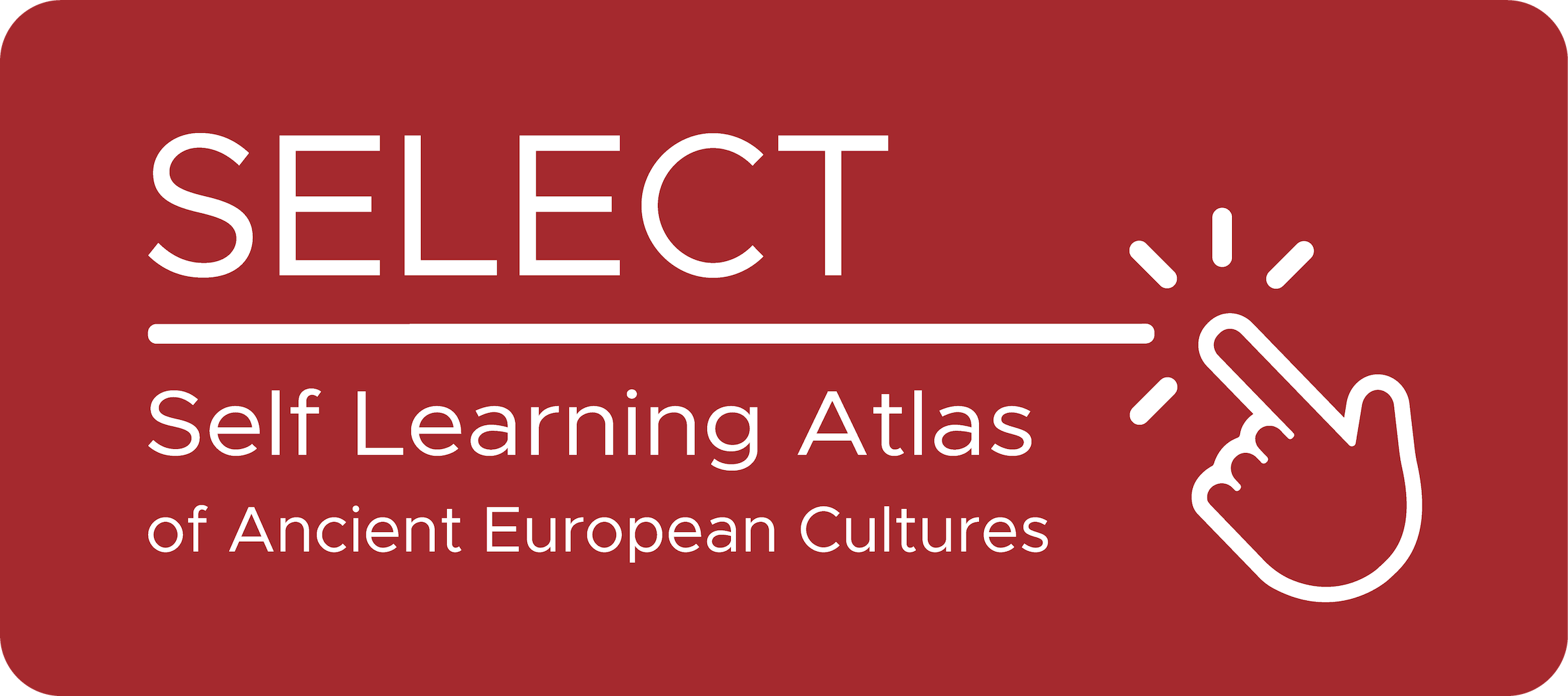
The SELECT project (Erasmus+ Key Action 2, 2020-2023) aimed to improve the study of ancient history and geography through the multidisciplinary, multi-layered, interactive and easy-to-learn ATLAS of the cultures of ancient Europe before Romanisation. Ancient peoples outside the Greco-Roman world are the ‘minorities of the past’, whose heritage is often neglected by the education system. ATLAS provides European citizens with an overview of Europe’s most ancient heritage, which has been objectified on a map, a powerful visual tool for learning about the past. The map refers to a territory that, in the present as in the past, is constantly developing and changing its borders.
The main OBJECTIVES of SELECT were two:
– To increase in European citizenship a deeper awareness of the common European culture outside the Greco-Latin world. The SELECT project took as its utmost importance the reconstruction of the overall historical geography of the peoples settled in ancient Europe, who left a written mark of their presence. The chronological span extends from the oldest written documents from the 8th century B.C. to the era of Romanisation (2nd-1st century B.C.). The geographical area covered includes all European countries where written documents in the chronological framework indicated above are known: Spain, Portugal, France, Italy, Austria, Switzerland, Slovenia, Greece (excluding Greek dialects) and European Turkey.- Providing European education systems with a self-learning tool for the study of the ancient world, while enhancing their digital skills. As suggested by the European guidelines ‘New Skills Agenda for Europe’ (2016), in an ever-changing digital society, the education system is strongly encouraged to develop self-directed learning and self-directed learning skills. The importance of digital cultural heritage in building 21st century competences has recently been emphasised by Europeana and the European Schoolnet Academy. Within this framework, the development of a comprehensive ATLAS of the languages, scripts and cultures of ancient Europe will support the autonomous learning of younger citizens on these topics.
The project partnership was composed of high-profile research and educational institutions and technology SMEs with validated competences in the fields required by the project. The partners were the three universities of Genoa (IT), Zaragoza (SP) and Poznan (PL), two research centres, Ausonius-CNRS (FR) and Alteritas (IT), two high schools, in Świdnik (PL) and El Pont de Suert (SP), and two technology partners, F|E|F (FI) and NCLOUD (IT). The project had three associated partners: the Musée Champollion de l’Écriture in Figeac (FR), the Sistema Bibliotecario Universitario della Regione Liguria (I) and the French Association of Classical Humanities Teachers CNARELA.
Alteritas team:
- Simona Marchesini: coordination; Etruscan (ET); update of the Messapic Database MLM, Rhaetic MLR with the update and cultural facies.
- Cristina Girardi: inscriptions from Veneto, Sabellic areas, Faliscan, Archaic Latin, Italo-Celtic (review and update), Etruscan inscriptions (ET).
- Luca Zaghetto: archaeological facies of Veneto, Trentino/Alto Adige (Rhaetians), Central Italy.
Link to SELECT’s site.

